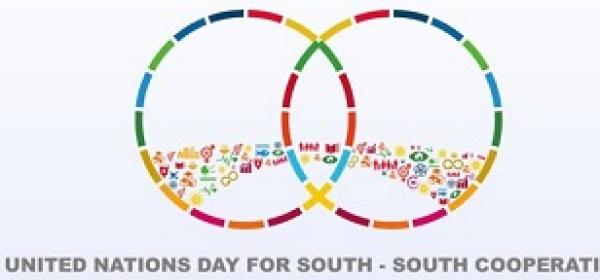
The United Nations has set aside Monday, September 12th, 2022, to celebrate the South-South cooperation day. Several Countries across the globe will join the UN to celebrate the day.
The United Nations Day for South-South Cooperation is observed annually on September 12 to highlight the importance of cooperation among people and countries in the global South. The day also aims at spreading awareness on the Social, Economic, and Political developments made in the Southern Region.
South–South cooperation is a term historically used by policymakers and Academics to describe the exchange of resources, technology, and knowledge among developing Countries, also known as Countries of the Global South. The Global South is making increasingly significant contributions to global development. The Economic and Geopolitical relevance of many countries has grown. In the past, south-south cooperation focused on sharing knowledge and building capacities, but the countries of the Global South and new financial institutions have recently also become increasingly active in development finance.
South-South cooperation is a manifestation of solidarity among peoples and countries of the South that contributes to their National well-being, their National and collective self-reliance and the attainment of Internationally agreed development goals, including the 2030 Agenda for Sustainable Development. The South-South cooperation agenda and South-South cooperation initiatives must be determined by the Countries of the South, guided by the principles of respect for National sovereignty, national ownership and independence, equality, non-conditionality, non-interference in domestic affairs and mutual benefit.
The 2022 Celebration of South-South Cooperation Day
The 2022 high-level commemoration of the United Nations Day for South-South Cooperation was organised during the Global South-South Development (GSSD) Expo.
The event which was held at UN Conference Centre, Bangkok, Thailand under the theme “Key Priorities and Future Directions in Advancing South-South and Triangular Cooperation for Sustainable COVID-19 Recovery: Towards a Smart and Resilient Future” was co-hosted by the United Nations Office for South-South Cooperation (UNOSSC), Government of Thailand and the United Nations Economic and Social Commission for Asia and the Pacific (UNESCAP).
During the event, stakeholders reflected on the vital role of South-South and triangular cooperation in supporting Member States to achieve the 2030 Agenda and deliver on the Decade of Action, while effectively recovering from the global COVID-19 crisis, and building resilient, sustainable, smart and inclusive societies.
The event provides an opportunity for UN member States to celebrate the UN Day for South-South cooperation and to reflect on their advocacy and commitment towards the contribution of South-South and triangular cooperation to urgent development solutions.
This event also features the launch of the publication “Good Practices in South-South and Triangular Cooperation for Sustainable Development – Vol. 4.” The new volume features more than 130 good practices presented by over 50 partners, including member states, intergovernmental organisations (IGOs), United Nations entities, and other development stakeholders. The volume includes solutions on COVID-19 response and recovery, poverty alleviation, climate action, trade facilitation and digitalization. Building on the three prior highly successful editions, the 2022 volume significantly expands the South-South and triangular cooperation knowledge base across all Sustainable Development Goals (SDGs), highlighting innovation, a greater diversity of partners now leveraging South-South and triangular cooperation and collaboration for development.
A reception and a cultural event were also hosted by the Government of Thailand and UNESCAP.
Speaking at the event, the UN Secretary-General, António Guterres said that,“South-South and triangular cooperation are critical for developing countries to mitigate and adapt to climate disruption, address the global health crisis, including Covid-19 recovery, and achieve all 17 Sustainable Development Goals.
“Given the post-pandemic scenario, the political-economic crisis caused by the war in Ukraine, and climate change, developing countries – with the support of partners in the North, international financial institutions, the private sector, think tanks and others – must strengthen South-South and triangular cooperation.”
The UN chief stressed the importance of Southern-led development solutions being shared “far and wide”, noting that“As the world recovers from the devastating social, economic and human impacts of the COVID-19 crisis, along with existing threats of climate change, South-South and triangular cooperation is the need of the hour.” He added that “South-South and triangular cooperation must play an ever-increasing role in resolving our common challenges”.
Meanwhile, the formation of SSC can be traced to the Asian–African Conference that took place in Bandung, Indonesia, in 1955, which is also known as the Bandung Conference. The conference has been largely regarded as a milestone for SSC cooperation. Indonesia's president at that time, Sukarno, referred to it as "the first intercontinental conference of coloured peoples in the history of mankind.”
Despite Sukarno's opening address about the conference, there had been gatherings similar to the Bandung conference in the past. Nevertheless, the Bandung Conference was distinctive and facilitated the formation of SSC because it was the first time countries in attendance were no longer colonies of distant European powers.President Sukarno also famously remarked at the conference that, "Now we are free, sovereign, and independent. We are again masters in our own house. We do not need to go to other continents to confer."
The Conference was sponsored by India, Pakistan, Ceylon, Burma, and Indonesia and was attended by these 29 independent countries: Afghanistan, Burma, Cambodia, Ceylon, China, Egypt, Ethiopia, Gold Coast, India, Indonesia, Iran, Iraq, Japan, Jordan, Laos, Lebanon, Liberia, Libya, Nepal, Pakistan, the Philippines, Saudi Arabia, Syria, Sudan, Thailand, Turkey, the Democratic Republic of Vietnam, State of Vietnam, and the Kingdom of Yemen. Each country supported the continuation of decolonization efforts happening in both Africa and Asia at that time. Although many countries disagreed on some issues, the Bandung Conference "provided the first major instance of the post-colonial countries' collective resistance to Western Dominance in International relations."
In 1978, the United Nations established the Unit for South–South Cooperation to promote South–South trade and collaboration within its agencies.It has been successful in decreasing dependence on the aid programmes of developed countries and in creating a shift in the international balance of power.






















